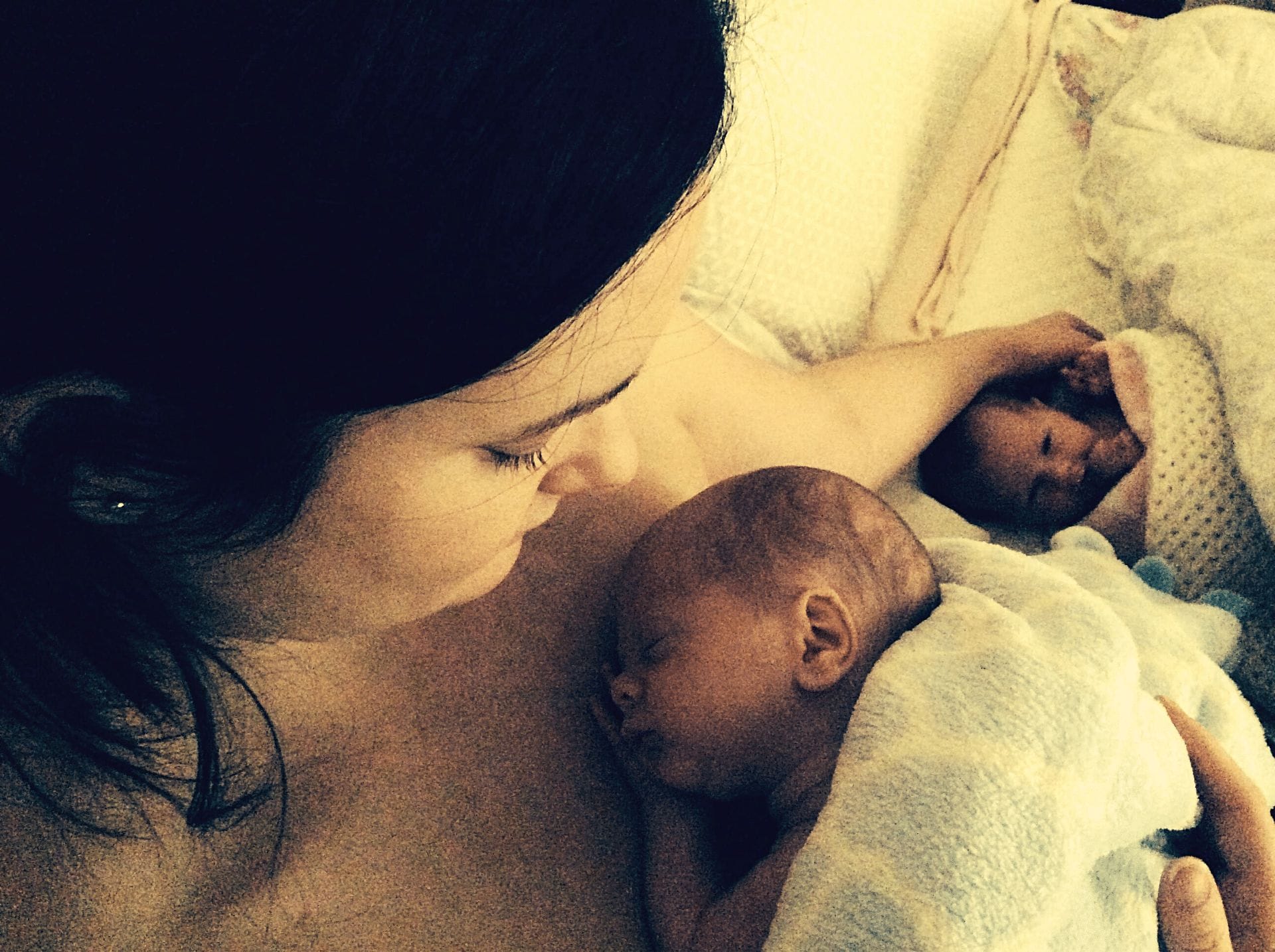We are proud to say that these posts are not sponsored. Our editorial team of Bobbie moms and writers personally select each featured product. If you buy something through our links, we may earn an affiliate commission, at no cost to you.
I’ve always believed breast is best. I had all my breastfeeding essentials and I was determined to breastfeed our twins. I watched YouTube videos, read the books, and talked to people about it. Nothing prepared me for how our feeding journey unfolded. At 29 weeks my waters broke in my office, I rushed to the hospital. I was in shock. Steroids were administered. Somehow I managed to hold on two more weeks before my tiny babies were delivered.
My twins arrived almost three months early
Those 2 weeks were long; I barely slept, and the babies’ heartbeats needed to be monitored frequently during the day and multiple times through the night. When labor began, I was already exhausted. One baby was breech and I had back labor. It was excruciating. I was really anxious about our babies having to go into the Neonatal
Intensive Care Unit (NICU). I asked for a C-section feeling that this may be the safest option.
I knew that we might run into complications with one baby being breech; they were so tiny that I didn’t want any trauma or stress for them. They were born at 7 pm. I kissed them and they were rushed to NICU. I never got that moment when they are put on your chest and you get to hold your babies for the first time. That first bonding moment was taken away, we didn’t get to snuggle or initiate breastfeeding.
At about 10 pm a nurse came in with a syringe, she told me she was there to collect colostrum (the first form of breast milk that’s released) for our babies. This was far from what I thought my first experience of feeding my babies would look like. And so the cycle began of hand expressing with a syringe initially, then pumping round the clock in order to try and get breast milk for our twins.
I didn’t get to hold our babies until noon the next day, thankfully my husband was with them in the NICU. This was so distressing – I broke down in tears looking at them for the first time. My daughter was in a high support unit and my son was in a larger NICU unit. I traveled between the two rooms constantly feeling guilty for not being able to be with both. There was no rooming-in option at our hospital.
Stress + preemies = bad milk supply
I had huge difficulty trying to establish any kind of milk supply. I had a C-section, and I wasn’t getting the biofeedback of holding my babies and nursing them. Triple Feeding is a term given to feeding when you are doing it all. This involves nursing (or attempting to nurse by putting the baby to the breast), pumping, and then bottle feeding (breast and formula milk).
I had to leave the hospital after a week and go home leaving our babies there. This was devastating as we walked out the door watching other parents beaming with their beautiful chubby babies.

Have you heard of quadruple feeding?
The joyful day of bringing our babies home came one month later. The relentless cycle of quadruple feeding began; trying to breastfeed, pumping, bottle feeding pumped milk, and topping up with formula for two babies, washing bottles, and starting again. I had about 15 minutes (if even) between one cycle ending and another starting. Showers and sleep were in short supply along with my milk.
I saw a lactation consultant once in the hospital – (there was only one for the entire hospital) and then a few times at home. One of my twins breastfeed a little ( I think) our other baby just cried and cried when I tried to put her to the breast. It became a huge source of stress. The triple or quadruple feeding method nearly broke me.
The last straw came when over the Easter weekend I developed mastitis – when I eventually got to a doctor the infection had advanced some. I had to go to the hospital, the doctor wanted to admit me as the infection was so bad. I just broke down, the thought of being separated from my babies again was just too much to take. The doctor agreed not to admit me but I had to attend a breast health clinic every Friday for the next month to make sure I was healing properly. It began to dawn on me that breastfeeding was not really worth all of this.
My breastfeeding journey ended, and I needed it to for my sanity
My breastfeeding journey came to an end. I just couldn’t do it anymore, I combination fed my twins for 11 weeks and then we moved to full formula. Life changed, I got to sleep more as I wasn’t quadruple feeding or awake half the night pumping. Our twins then started sleeping through the night. I got to just focus on enjoying and bonding with my little precious babies. I realized that feeding them was just one part of being a good mom.
Here’s what I know now: bonding with and enjoying time with your baby is most important. Breastfeeding should not be at the expense of a mother’s mental health; it shouldn’t be so stressful that it hinders bonding with your baby.
Formula is a perfectly acceptable alternative to nourish your baby and for some families—this is what is best. Please don’t judge people for the choices they make; every mother wants what is best for her baby. You never know the circumstances that have led people to make certain choices. To any mom with a baby in the NICU: make sure to be gentle with yourself. You are doing your best.

